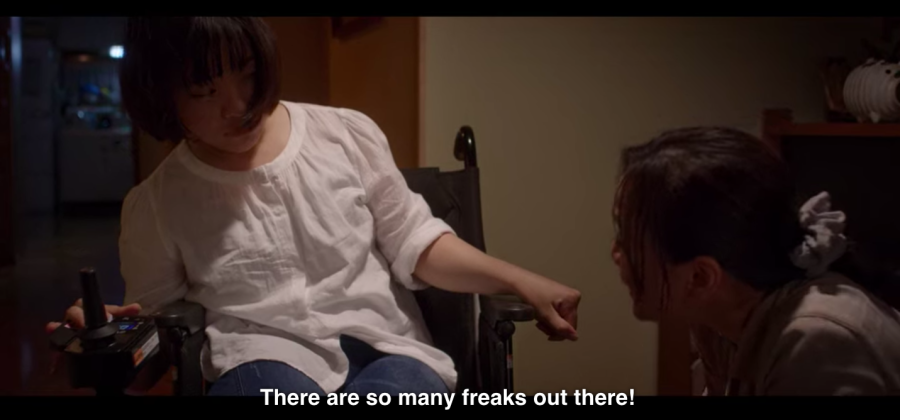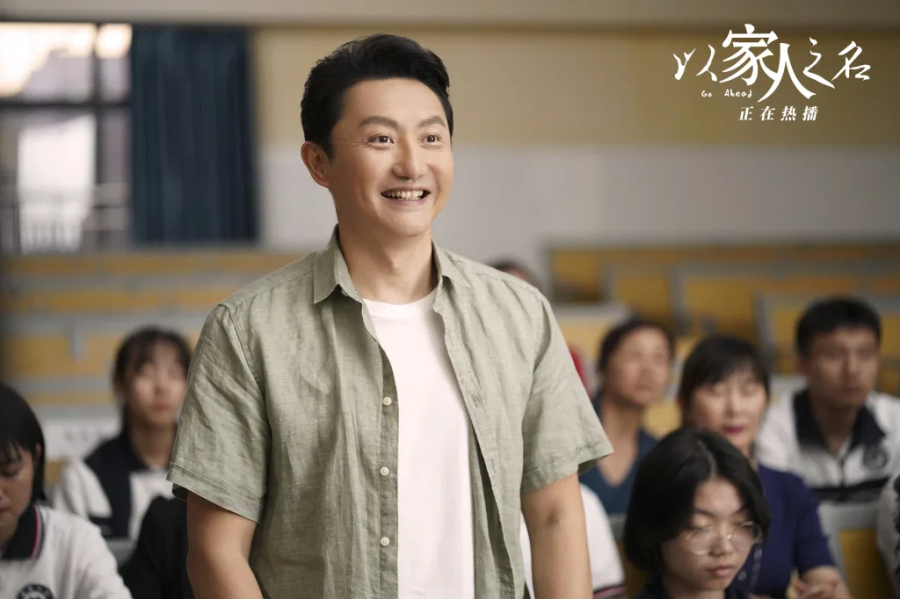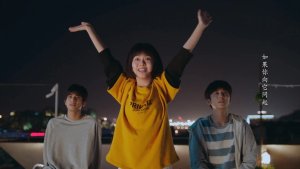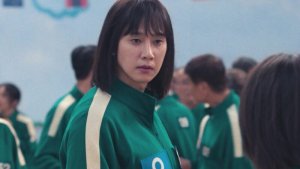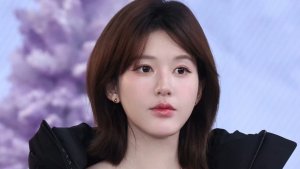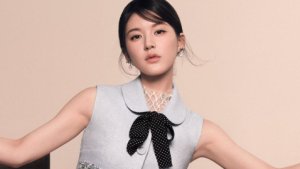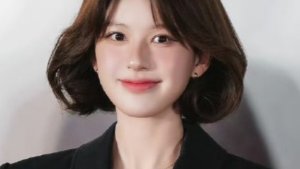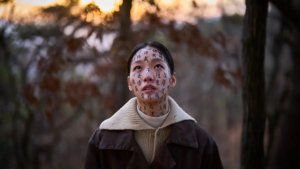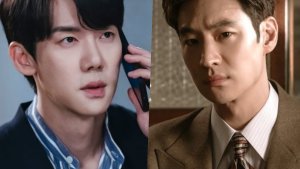 Experience the Thrilling World of Dramas (Part 2)
Experience the Thrilling World of Dramas (Part 2)
“What's a mommy?” - Papa and Daddy
Mothers. Most of us have some kind of relation to the concept of motherhood: being mothers ourselves; having come out of a womb; having the most amazing mom ever; or never even having met that person. Some have no one to call ‘mom,’ while others have several mothers. While some may not have had a mother in the traditional sense, they most certainly have people in their lives fulfilling the role of a mother. And there are those who just cannot relate to the notion of motherhood at all. Dramaland has served us with all different untraditional mothers. With the help of those representations, we aim to dig deeper into the understanding of motherhood and learn how mothers are portrayed in Asian dramas, focusing mostly on the role of a mother rather than the biological aspect we are often taught growing up.
We could have chosen to write about parents in this article, believing that people of all genders should take on the same responsibilities and roles and be able to share the same lifestyle as parents. However, by doing that, we would be showing ignorance towards reality that society sets different standards according to gender. Even if we chose to use the gender neutral term 'parent,' it would not have the same meaning.
Kai: "You're not female."
Daddy: "But we take care of you the same way moms do." - Papa and Daddy
While there is a strong discourse saying that mothers are supposed to be caring, loving, and self-sacrificing, and always have their children's best in mind, we see that this idea can actually be dangerous for both the children who grow up in a different reality and for women who do not feel that extreme bliss when entering parenthood. Dramas play a big role in both enhancing and breaking down that idea and showing a wide range of ways to be a mother. |
Becoming a mother
"My mom killed a person and went to jail for me. Also, another mom stood by my side and watched over me for 30 years. That's why I'm here. Because I know well what it means to become a child's mother." - Mother
Entering motherhood is often described as this blissful time filled with happiness, instant love, and the feeling of joy. After giving birth to a child, many people can feel lost all of a sudden, finding themselves in a different dimension with a whole other set of rules, hierarchies, and recipes to becoming the “good mother.” This is portrayed beautifully (and humorously) in the drama Birthcare Center, offering most mothers a character with which they can find recognition. In this drama, we are introduced to a variety of ways to respond to the transition into motherhood. This drama shows that there should not be a right or wrong way to feel when becoming a mother, and offers recognition to most mothers (but does lack the LGBT+ perspective). This show is really a must watch for all who intend to enter motherhood or know someone who may want to do so; starting with how the main protagonist compares entering motherhood with death and struggles to keep one's self worth alive, while transitioning into a motherhood where one is expected to put everything aside for the sake of their child. “I came back after meeting the grim reaper... but that day was my end.” But then again, most ends are the start of something new. | 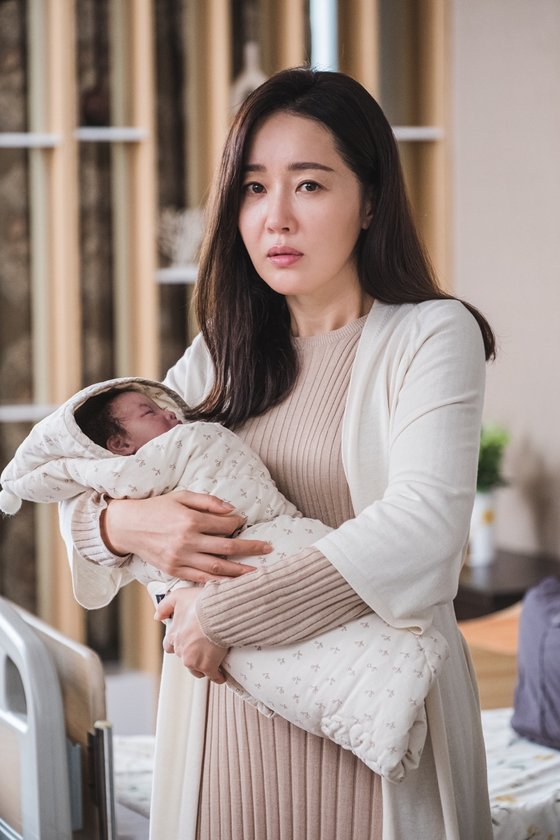 |
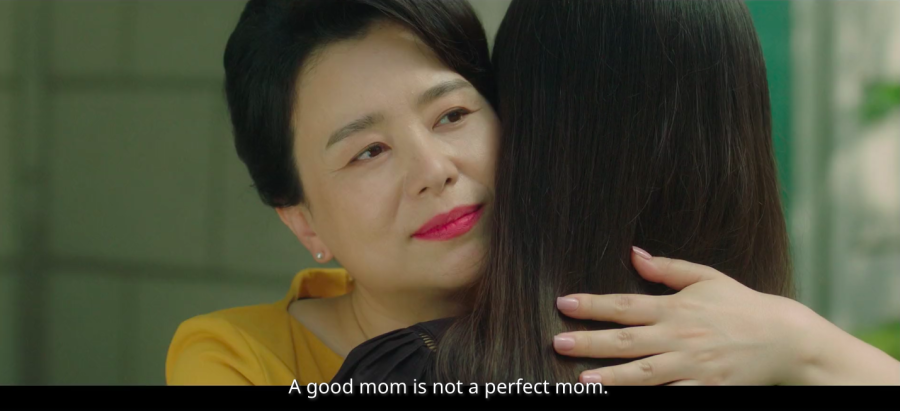
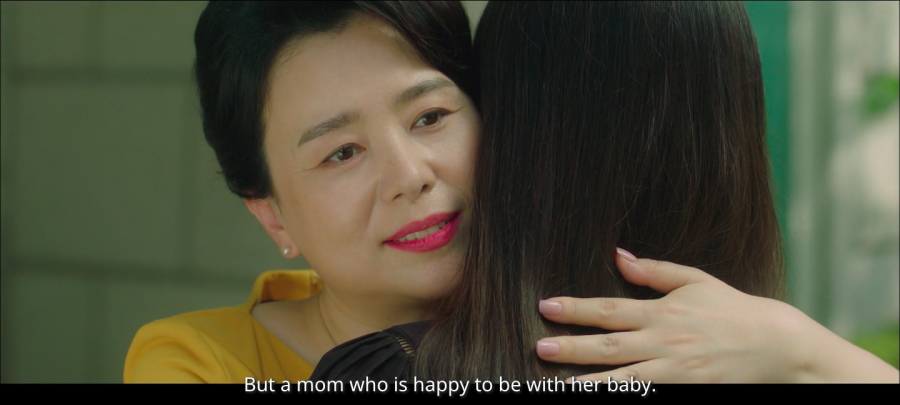
There are, of course, several ways to become a mother. In Papa and Daddy, we get a glimpse into both surrogacy, adoption, and sperm banks as starting points on the way into motherhood, alongside the traditional biological mother giving birth. We have noticed that becoming a mother without being the one giving birth to the child often entails leaving out the biological mother out of the picture. However, in the movie His, we find a biological mother who fights to stay in the picture, while the role of the mother is actually portrayed by the ex- husband. This movie shows both prejudices against men and homosexual relationships, and offers an interesting twist on claiming responsibility for the lack of access to several parents with the role of the mother. This drama has both homosexual representation and great social criticism towards the concept of fatherhood.
Revealing the selfish aspect of not sharing the role of the mother and instead claiming it for oneself, the reality that many men do not get access to their children because of traditional gender roles, is explored in this drama. Growing up without a biological motherIn One Spring Night, the mother leaves the child early on with his grandparents and single dad, who, together, take on the role of a mother. At one point, the child is asked to guess who the woman in front of him is, and he answers, "Mom." This situation causes confusion and embarrasses the father, showing that the term 'mother' is very loaded yet completely obscure to the child who does not remember his biological mother. |
Hi Bye Mama! shows this sad yet funny and beautiful portrayal of two mothers. The first one longed for her child while in the womb but died before she got a chance to hold her. Her motherly longing kept her soul roaming and looking after her child for the next five years before she got a chance to come back for 49 days. The second one, the stepmother, defies the traditional ‘stepmothers can’t be real mothers’ notion and tries her best to raise the child as her own. |
Adoption is a recurring theme used in many dramas. In Chocolate, we meet a mother who cares so much for her adopted son that she takes him back to South Korea and searches for his birth mom just so that he can taste the stew his birth mother used to make for him one last time before he dies. |
One of the best adoptive mother-child relationships we have seen be successfully represented is in Mother. The adoptive mother takes extreme steps and risks everything she has by kidnapping, becoming a fugitive, and trying to escape everything and everyone she ever knew for the sake of saving a child from domestic abuse and further risks. |
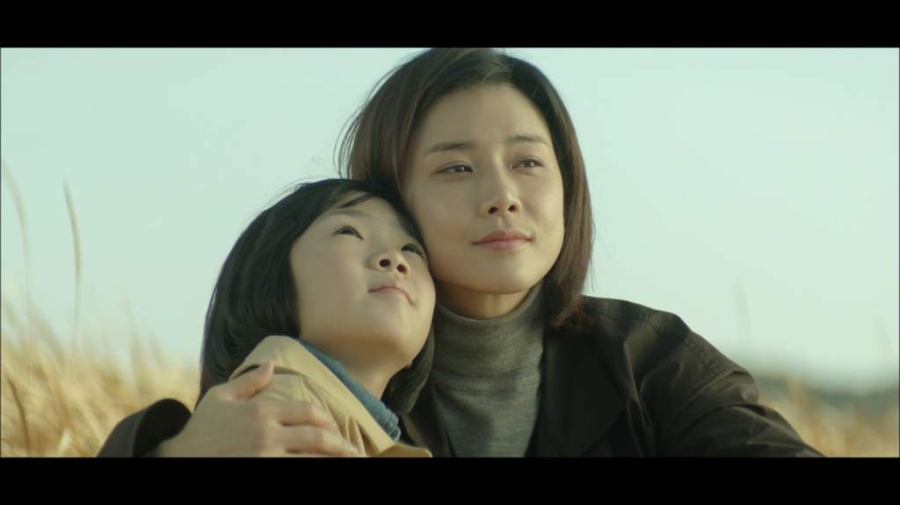
Move to Heaven shows that not all adoptions are successful. We encounter a child who is abandoned by his adoptive parents after finding out he has a heart condition, leaving him stateless. It is truly tragic being abandoned and disowned by both biological and adoptive parents. |
The really, really, really bad mothers"All mothers are sinners." - It's Okay to Not Be Okay As we stated before, not all of us grew up with a loving mother, and someone’s bitter experiences might resurface. This is of course up for discussion: What makes a bad mother? You are of course welcome to discuss with us about this, but here are some examples. In It's Okay Not to Be Okay, we find a very interesting mother yet not really the kind of mother you wish you had. The drama points out how mothers can be a huge influence on a child's mental health. The dark past of the female lead influenced by her mother made her suffer from PTSD. |
While Mother gave us a heart-warming portrayal of an adoptive mother, at the same time it also represented a beyond-redemption biological mother, who throws her own child out as trash and leaves them outside in the freezing cold after being abused by both the biological mother and stepfather. Yet shockingly enough, the biological mother still seemed to want custody of her child. |
The mother who could have been good if she only got the help she neededWe, the authors, have had very different types of mothers. For this next segment, I (Shiri) am going to disconnect myself from the ‘we’ to talk about my personal experience after watching Go Ahead. While my mother did not abandon me, I often wished she would have, especially if it had meant I would have had the opportunity to be raised by someone more capable. Yes, I dare say that sometimes the biological mother is not the best person for the child, and this needs to be said over and over and over again. This was the first time I saw a mother’s character so close to mine, from the way she talked, the way she shifted responsibility, to the way she tried to guilt her children in to taking care of her. Not to mention that this drama shows both a well functioning family without the biological mothers, and the result of what happens when the children are left to fend for themselves. But enough about me, back to the 'we.' We would like to state that not all mentally ill parents are not fit to be mothers and stress the need of offering support. This drama beautifully portrayed both what happens when given support as well as how a lack of support leaves mothers and children in desperate need of mental help, struggling. In some cases, their children are the ones who take the responsibility and are left to fend on their own. A reality for many children today with mentally ill parents, this drama offers representation that breaks the notion of the good mother and sheds light on mothers not always being best for their children, something rarely seen on screen. We actually do believe that most people can become good mothers with proper help. |
The overprotective and self sacrificing mothers"Sometimes, I was mad about why Mom doesn't have a bit of honor or pride. That is because there is something more precious than herself. It was because of me." - Reply 1988 We see several mother-related clichés in dramaland that range from throwing money to water. We are quite unsure about the existence of such clichés in real life. However, they sure portray, though extreme, the overprotective side of motherhood. The biological mother we love to hate the most is probably the biological mother in Something in the Rain. This mother is the extreme example of mothers who think they know best and completely ignore their adult children's wishes and not let go of them even in adulthood. In her fit of anger, she not only hurts herself but also people around her. |
In The Heirs, we find the biological mother who is the mistress of a rich cruel man. She was even willing to spend her life as a complete shadow just to make sure her child inherits his father. Moving onto Sky Castle, which focuses on some real life issues that are observed especially in Asia. As someone who spent most of her life in Asia, I (Kie) can say that I grew up in a similar environment, where the success of their kids is used to define their parenthood. I escaped such surroundings in order to find my real self, instead of getting torn in a vicious battle of pride. Luckily, my family was on the edge of the spectrum, especially my mother, who trusted and supported all of my life decisions. However, I believe most of kids who grew up in Asia would resonate with this quote at some point: |
In the toxic environment of Sky Castle, we observe that it’s more of a competition between mothers to get their children into a reputable university than between the kids themselves. It also focuses on the traditional values, where the mothers see their own success in their kids’. However, in the drama, these values are taken to extremes as some mothers give up their own career and solely live vicariously through their children, losing all their self worth. This drama takes us on a ride along with some mothers as they learn to understand and improvise their relationship with their child. Nevertheless, we also see the representation of a mother of a disabled person in 37 seconds. It tells us a story about insecurities faced by those mothers. The movie is a wonderful portrayal of a road to self discovery of a girl who suffers from cerebral palsy. However, her caring but overprotective mother is worried about the dangers she would face as a disabled and tries to keep her away from the outside world. Though her motive was to protect her daughter, she crossed the boundaries snatching away the independence her child deserves. But if you watch the movie you’ll realize that she’s still a loving mom who deserves a chance.
|
Other motherly representations (a small selection)In The Heirs, the rich boy falls in love with a poor girl with a mom who is supportive, fun, and would probably do anything for her children. She also offers representation for mothers with disabilities, proving to be just as competent as any other mother (actually being the most competent mother in the whole show). “She is my mom, so she knew.” - I Promised You the Moon A beautiful portrayal of a mother who saw through her son’s eyes and slowly tries to understand his son’s coming out of the closet for the sake of his happiness. In Papa and Daddy, we get to meet both gossipy housewives, lesbian mothers, a mother filled with prejudice, and of course the homosexual mothers who struggle to raise their child as normally as possible while struggling mostly with their own internalized prejudice as well as living in a heteronormative society, unable to make place for the existence of other lifestyles and ways to form a family. This drama shows us the importance of inclusive language and zooming in to the child's struggles to understand the concept of “mother.” Move to Heaven, besides offering ten episodes filled with tears, also introduces us to several mothers. We do not know much about Geu Roo's (Tan Jung Sang) family in the beginning, just that he lives alone with his father, who takes on the role of a mother in the most loving way possible, adjusting his environment to fit both their needs and being the mother we all wish we could be. Then there are the really sad dramas where the mother or child dies in some way or another, sometimes with long illnesses as in Chocolate; by cruel murder as in Mouse; or just in an accident as in Hi Bye Mama. These dramas show viewers both extreme and less extreme ways to deal with the death of one's mother or child. |
"A woman who lost her husband is a widow. A man who lost his wife is a widower. A child who lost his parents is an orphan. But do you know why there’s no word for a mom who lost her child? It’s because no word can describe the excruciating pain." - Hi Bye Mama
The mother we wish we had or we could be like or have had ourselves“My mom is like morning that banishes night.” - While You were Sleeping We don’t believe supermoms exist, but it’s the effort they put in for their child’s happiness, the fight against the prejudice and societal norms, and the patience and affection towards understanding their kids, that makes them worth all the praise in the world. The one mother we both agree as being the most admirable mother is found in Go Ahead. This drama features two biological mothers who give up their sons for very different reasons. We have already talked about one of the mothers; the other one could be said to have given up her child for his own good, but we will not dig into the reason here in fear of spoiling the show. But honestly, this story made it’s way right into our heart as one of our favorite portrayals of motherhood. Yes, the mother we wish we could be, the mother of all mothers, is Li Hai Chao (Tu Song Yan). He is too good to be true as he takes on the responsibility of the upbringing of not only his own daughter but also two sons coming from a dysfunctional family. Under his utter care, none of the kids ever felt the need for a missing parent. While balancing work and motherhood, he is just this awesome mother who is there for all his children. Let's give him the applause he deserves:
There are of course a lot more mothers out there, good, bad, and just good enough. These are just some of our favorite and most notable portrayals of mothers that we have come across while enjoying Asian dramas and movies. After watching Asian dramas, we dare say that no matter who gave birth to you, how you felt while giving birth, or who played the role of your mother, we are sure you can find a mom that you can relate to among all the diverse portrayals of motherhood in Asian dramas and movies. You just have to look for the right one. We are curious to find out if and where you found representation. Who is your personal favorite mother in this dramaland? |
Edited by: Mina (1st editor), devitto (2nd editor)

